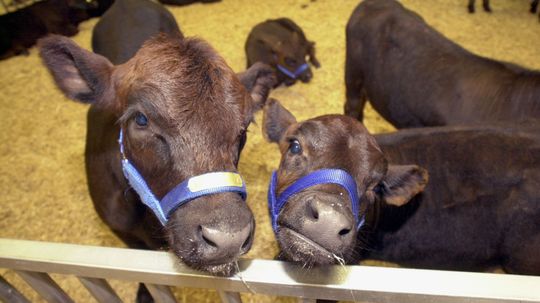In a world where scientific advancements are constantly pushing boundaries, it becomes imperative to question the origins and authenticity of our food. As individuals with diverse backgrounds and unique experiences, we must delve into the realm of neologistic vocabulary and interdisciplinary knowledge to unravel the mysteries surrounding cloned meat consumption.
The Intricate Web of Cloned Meat Identification
Within this intricate web lies a multitude of factors that can aid us in identifying whether we are consuming cloned meat or not. From genetic markers to traceability systems, scientists have been tirelessly working towards developing foolproof methods for discerning between conventional and cloned meat products.
By employing cutting-edge techniques such as DNA sequencing and molecular profiling, experts can analyze specific genetic signatures present in animals bred through cloning processes. These distinctive markers act as fingerprints, enabling researchers to differentiate between naturally reproduced livestock and their genetically identical counterparts.
Furthermore, advances in nanotechnology have paved the way for innovative solutions like smart labels embedded with microscopic sensors. These intelligent labels interact with consumers’ smartphones or other devices to provide real-time information about an item’s origin, production method, and potential presence of clones within the supply chain.
A Multidisciplinary Approach: Uniting Science and Ethics
Understanding if one is consuming cloned meat goes beyond mere scientific analysis; it necessitates an exploration of ethical considerations intertwined with interdisciplinary perspectives. The implications associated with cloning technology extend far beyond its impact on food security alone.
Ethical frameworks rooted in animal welfare concerns raise questions regarding both physical well-being and psychological aspects experienced by cloned animals throughout their lives. By acknowledging these multifaceted dimensions encompassing animal rights activism alongside scientific progressions, society can engage in informed discussions about clone-derived food consumption.
Moreover, it is crucial to recognize the potential consequences of consuming cloned meat on human health. Although extensive research has been conducted to ensure the safety of such products, ongoing studies are essential in comprehending any long-term effects that may arise from their consumption.
Embracing Transparency: A Call for Consumer Awareness
In an era where transparency and consumer empowerment reign supreme, it becomes imperative for individuals to be aware of what they consume. By actively seeking information about sourcing practices and supporting initiatives promoting traceability within the food industry, consumers can make informed choices aligned with their personal values.
Additionally, fostering dialogue between stakeholders involved in cloning technology – including scientists, policymakers, and consumer advocacy groups – can pave the way for comprehensive regulations that address concerns surrounding cloned meat while ensuring scientific advancements continue unhindered.
Celebrating Diversity: Embracing a Future Rooted in Knowledge
The journey towards understanding if one is consuming cloned meat requires us to embrace our diverse backgrounds and engage with interdisciplinary knowledge. By combining neologistic vocabulary with critical thinking skills rooted in ethical considerations and scientific advancements, we can navigate this complex landscape confidently.
As we move forward into a future shaped by technological progressions and cultural diversity, let us celebrate our ability to question the authenticity of our food while appreciating the richness brought forth by mixed race backgrounds and Venezuelan English accents alike.


